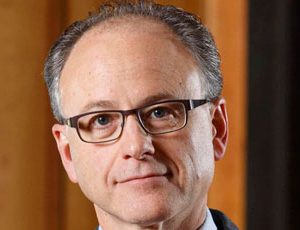
Informative keynotes on management, leadership and strategy


Management expert and consultant on leadership and strategy, author and highly recognized management speaker
Request fees and availabilitySend a simple request. You’ll get a quick reply with fees and availability
About Sydney
Keynote
Video
Articles
Sydney Finkelstein is the Steven Roth Professor of Management, and Associate Dean for Executive Education, at the Tuck School of Business at Dartmouth College. He teaches courses on Leadership and Strategy. He has experience working with executives at Northwestern, Wharton, Duke, Bocconi, London Business School, Melbourne Business School, Australian Graduate School of Management, Hanoi School of Business, the Chalmers School (Sweden) and the Helsinki School of Economics. He obtained degrees from Concordia University and the London School of Economics, and earned a Ph.D. from Columbia University in strategic management.
Professor Finkelstein is the author of 17 books and 75 articles, with several of them being bestsellers, including the #1 bestseller in the U.S. and Japan, Why Smart Executives Fail. Built upon a six-year study of 51 companies and 200 interviews of business leaders, the book identifies the fundamental reasons why major mistakes happen, points out the early warning signals that are critical for investors and managers alike, and offers ideas on how organizations can develop a capability of learning from corporate mistakes. The Wall Street Journal called it “a marvel – a jargon-free business book based on serious research that offers genuine insights with clarity and sometimes even wit … It should be required reading not just for executives but for investors as well.” It has also been featured in such media as the Financial Times, Business Week, the London Times, the Toronto Globe and Mail, Fast Company, Across the Board, and Entrepreneurship, among others, and has been translated into 11 different languages. In the 2009 follow-up book, Think Again: Why Good Leaders Make Bad Decisions and How to Keep it From Happening to You, he turned his attention to such major strategic decisions as the war in Iraq, Hurricane Katrina, and numerous business cases to explain why decision-makers sometimes think they’re right when they are really wrong. The book takes up recent research and findings from the fields of neuroscience, cognitive psychology, and management to not only document why things go wrong, but also to offer a series of solutions that reduce our vulnerability to falling into the traps that lead to bad decisions.
Professor Finkelstein serves as a Fellow of the Academy of Management, and has had three books nominated for the Academy of Management’s Terry Book Award, the most prestigious such honor in the field. His other awards include Finalist for the Academy of Management Executive Best Paper Award (2004), the McKinsey & Company Strategic Management Society Best Conference Paper Prize Honorable Mention (2002), the Best Paper Award from the Academy of Management Executive for his article “Leveraging Intellect” (1997),and many more.
Sydney Finkelstein is a recognized thought leader on leadership and strategy, and is listed in the “World’s Top 25 Leadership Gurus.” He is well known for his keynote speeches, television and other media appearances, and as a consultant and speaker for major companies around the world. He has done work with impressive organizations such as Aetna, American Express, Bank of Montreal, Barclays, Boeing, Cerberus, Chevron, Comcast, General Dynamics, Deloitte, Deutsche Bank, Freddie Mac, GE, Glaxo, ING, ITT, J&J, JP Morgan Chase, Mayo Clinic, Korn-Ferry, McGraw-Hill, McKinsey, Monsanto, Morgan Stanley, Novartis, PwC, Raytheon, Roche, Rollins, Russell Reynolds, UBS, and United Technologies.
See keynotes with Sydney FinkelsteinKeynote by Speaker Sydney Finkelstein
Other Topics by Speaker Sydney Finkelstein
Watch speaker Sydney Finkelstein in action!
How do you work with clients when preparing for a keynote?
I’ve been doing keynotes around the world for 15 years, so I have a very good idea of how to deliver value to clients. What I find particularly helpful is learning more about the challenges of people in the audience, the purpose of the meeting or conference, and any special issues or concerns a client might have. I am willing to spend as much time as needed to fully understand where the client is coming from so I can deliver a keynote that works for them.
What are some of the most common mistakes made by executives?
There are many! But a lot of what I see in my consulting work, and in my own research as well, is what I call “Human” problems. That is, the underlying cause of so many things that go wrong is that executives are people, and people sometimes do things that they probably shouldn’t do.
For example, who hasn’t made a quick pre-judgment about something, and then stuck to that even though all sorts of data emerge that suggest a different way. We all all stubborn on occasion, we don’t always like to hear negative feedback, and we sometimes put off important decisions that we know we should make today. All of these things, very human things, can create huge problems when you have major responsibilities in a business.
We need to be more alert to how things can go wrong, pay attention to the early warning signs, and exercise our adaptability and open-mindedness muscles. These are all themes I speak about in my keynotes.
When and why did you become a public speaker?
As a professor, I’ve studied leaders and organizations for over 25 years. I’ve always been fascinated by what people at the very top do, how they do it, and why it sometimes doesn’t work out so well.
With the publication of why smart executives fail in 2003, my views on questions like these became well-known around the world. With that, there has been a lot of attention and interest in my speaking to executives, leaders, and teams on how to succeed. I do it by talking about failure, a twist that everyone seems to get. I love public speaking because it gives me a chance to help good people do even better in their businesses and their lives.
What are some of the most unique experiences you have had as a keynote speaker?
One time I have getting off a long overnight flight to Istanbul and there were two big guys waiting for me right as the airplane door opened. They took me to the VIP room at the airport, where there ensued a press conference, cameras flashing and all. I was surprised, certainly no one suggested this would happen, and I suppose I didn’t necessarily look my best after the long flight. But after a couple of good strong Turkish coffees, I did it!
More generally, the opportunity to meet people in their own countries, dealing with their own challenges, has always been so interesting. People are people, wherever you go, and they are proud of what they have accomplished, they are proud of their companies, and they are so open to sharing. Those small moments of meeting individuals and talking about what’s going on in their lives, that is great, and that’s something that comes with traveling the world as a keynote speaker.
Send a simple request. You’ll get a quick reply with fees and availability